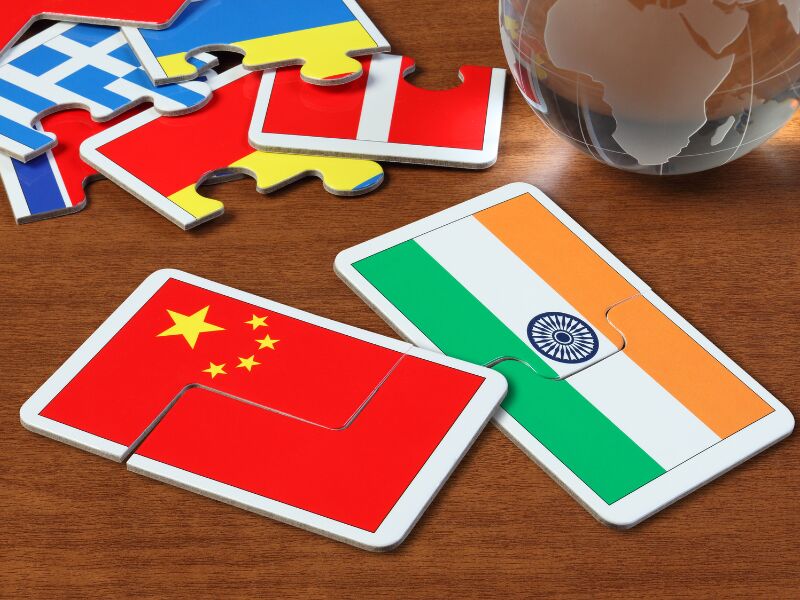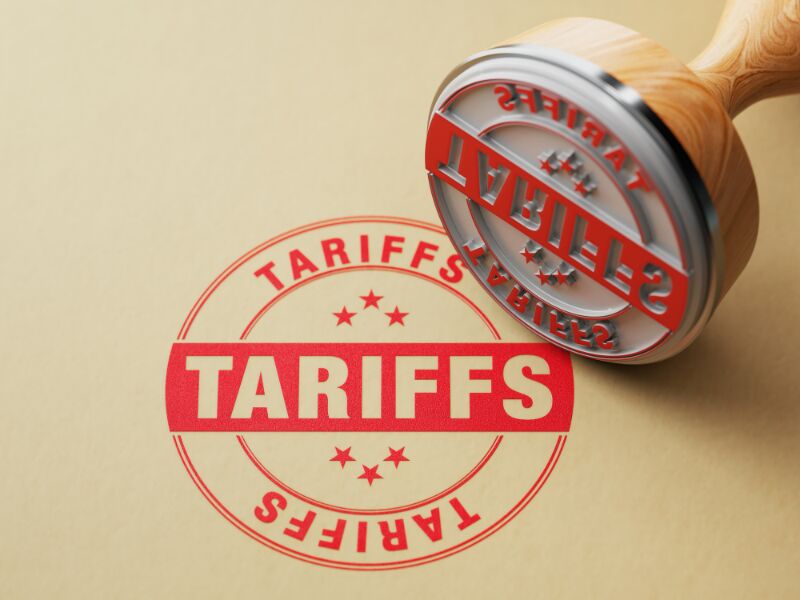The Changing Geopolitics of Apostilles
The global economy keeps changing. For many years, most international business ran through well-known Western centres, and the paperwork followed a predictable—often slow and complicated—path. Now there’s a clear shift. As more production and trade move toward India, South Asia, and China, the basic rules for cross-border paperwork are changing too. That change is affecting how companies and everyday people prove their documents are real and ready to use overseas.
This shift is bringing in a simpler way to verify documents. Instead of the old, multi-step consular process, many countries are using an apostille-first approach under the Hague Convention. One standard certificate can replace a long chain of approvals. Understanding this switch isn’t just a legal detail—it helps with planning launches, meeting bid deadlines, hiring talent, and entering new markets on time. In this blog, we will understand what an apostille is, why “apostille-first” is replacing consular steps, and how you can prepare the right documents for faster, smoother approvals when doing business abroad.
From Consular Sequences to Apostille-First Workflows
For years, sending documents to many Asian countries meant a step-by-step chain: first notarize, then get state authentication, then go to the destination’s embassy or consulate. Every extra step adds days, more courier trips, and a higher chance of rejection.
Now, as more countries accept apostilles, one standard certificate can replace most of that chain when both countries are in the Hague Convention.
That speeds things up and makes outcomes more predictable, provided you follow the destination’s checklist exactly. Some places are still changing over or keep consular steps for certain records. Bottom line: always confirm the receiving authority’s current rules before you draft, notarize, translate, or ship your documents.
What Changes by Use Case (Side-by-Side Basics)
Different filings trigger different evidence requirements. Here’s where the apostille-first pivot shows up most:
- Entity formation India / China: Corporate extract (formation or good standing), board resolution naming an authorized signatory, notarized signatory ID pages, translation as required; apostille recognized where applicable. Bangladesh: Apostille replaces most consular steps for qualifying documents; translation standards and layout fidelity remain important. Vietnam: Often remains on a consular track; anticipate state authentication plus embassy/consulate certification along with sworn translations.
- Agency appointments / Powers of Attorney India / China / Bangladesh: Notarize the POA/agency agreement, apostille it, attach signatory evidence; translation expectations vary by authority. Vietnam: Notarize → authenticate → consular legalize; translator affidavits are common.
- Tender participation: For tender bids, expect a standard bundle: a certificate of good standing, beneficial-ownership (UBO) declarations, a board resolution or power of attorney (attorney-in-fact) naming the signer, and the required tender form statements. If the destination accepts apostilles, approvals usually move faster—but certified translations and exact formatting still make or break the filing. Always check the latest destination checklist; ministries and procuring bodies can change forms and wording with little notice.
U.S.–India Tariff Tensions: Why Paperwork Got Heavier
Because tariffs between the U.S. and India have been in the spotlight, officials on both sides are looking more closely at documents. That means extra checks on who your company is, who is allowed to sign, and whether translations are exact.
In practice, you may be asked for more backup papers—like signatory certificates, detailed board resolutions, and powers of attorney that match the destination’s wording. Small mistakes now trigger delays: a name spelled differently than the passport, a company address that doesn’t match the certificate, or a translation that misses a legal term.
Using an apostille-first approach (where accepted) makes review faster and more predictable, because the documents carry a standard, recognized certificate. Plan translations early, keep spelling and dates consistent across all pages, and allow buffer time for couriers and public office holidays. When your packet follows the destination checklist exactly, regulatory and tender reviews tend to move smoothly—even in a tougher tariff climate.
Key Documents You’ll See Most
Across India, South Asia, and China, three categories dominate cross-border authentication:
- Corporate extracts & agreements: Articles/Certificates of Incorporation, Certificates of Good Standing, officer/secretary certificates, board resolutions, framework/agency agreements—often requiring notarization and apostille (or consular steps where apostilles are not accepted).
- Agency appointments: Powers of Attorney and agency appointments authorizing local counsel, distributors, customs brokers, or tender agents.
- Education credentials: Degrees, diplomas, transcripts, and professional qualifications for hiring and study—commonly needing notarization, apostille, or consular steps, plus certified translations.
For organizations preparing filings across these hubs, Apostille Services New Jersey can coordinate end-to-end workflows so each international document apostille aligns with destination-specific requirements.
Country Kits and SLAs: Pre-Built Packages That Cut Rework
New Jersey Apostille Services offers pre-built country kits for priority destinations, each outlining notarization standards, translation requirements, courier options, and Fast vs. Economy SLA tiers with clear refund terms where a rejection is attributable to certification error (client-originated defects and destination rule changes excluded):
- China — Apostille recognized; certified translations often required; attention to local seal (“chop”) conventions after acceptance. SLA: Fast 3–5 business days; Economy 7–10 business days.
- India — Apostille accepted; typical bundles include corporate extract, board resolution designating the signatory, notarized POA (if used), and translations as required by the receiving authority.
- Bangladesh — Apostille in force; timelines and courier cycles shortened versus prior consular sequences; standardized translation templates reduce bounce-backs.
- Vietnam — Generally consular; kit covers embassy appointment protocols, fee payment methods, and translation affidavit models to speed intake.
- KSA (pending) — Country Kit pending; workflows, SLA tiers, and refund terms will be published upon launch.
Turnarounds vary by document type, state workload, destination holidays, and courier transit windows; selecting New Jersey notarization for international documents helps keep drafting, notarization, legalization, translation, and dispatch on one coherent track.
Practical Planning: Making Apostille-First Work
Start with the destination form. Use the receiving authority’s exact template. Match names, titles, addresses, and date formats exactly; let their checklist guide your wording.
Fix the signatory authority early. Decide who signs and prove it up front with a board resolution or officer’s certificate that mirrors the destination’s language. Add required IDs/specimen signatures and notarize if needed.
Write for translators. Keep wording plain and consistent (use the same terms every time). Provide an editable file and request a certified translation; confirm whether the apostille comes before or after translation.
Plan the courier step. Add a few buffer days for shipping and holidays, confirm delivery hours, use trackable service, and keep clean PDFs of everything you send.
Final Thoughts
When global markets shift, paperwork changes too. More countries now use an apostille instead of long consular steps, so one standard certificate can replace a slow chain of approvals. If you’re doing business in fast-growing hubs like India, South Asia, or China, understanding this switch can save weeks and lower the chance of rejection. In short, apostille-first is quickly becoming the faster, simpler way to get documents accepted abroad.
At New Jersey Mobile Notary & Apostille Services, we’re your trusted partner in this new setup. We handle notarization, state or federal apostilles, and translations, and we know the specific requirements for India, China, Bangladesh, and more. Our ready-made country kits explain exactly what you need, and our expedited options help you meet tight deadlines. You get clear steps, tracked couriers, and steady updates. We turn a complicated task into a smooth, confident hand-off.
Ready to keep your documents moving as fast as your business? Contact us today!
Frequently Asked Questions
1) What is an apostille, and when is it required for international documents?
An apostille is a special certificate from a state or federal office that confirms a public or notarized document is genuine, so it can be used in another country that follows the 1961 Hague Convention. It’s often needed for company records, powers of attorney, birth or marriage certificates, and school diplomas or transcripts.
2) How do I get an apostille for my documents?
First, check the rules for the country where the document will be used. Prepare the document and have it notarized if required. Then apply for the apostille from the correct state or federal authority. If the destination country asks for it, add a certified translation. Finally, send the complete packet by courier exactly as the receiving office instructs.
3) What if the destination country is not in the Apostille Convention?
In that case, use the consular/legalization process: you typically notarize the document (if needed), obtain state authentication, and then get certification from the destination country’s embassy or consulate, including any required certified translations and forms.




